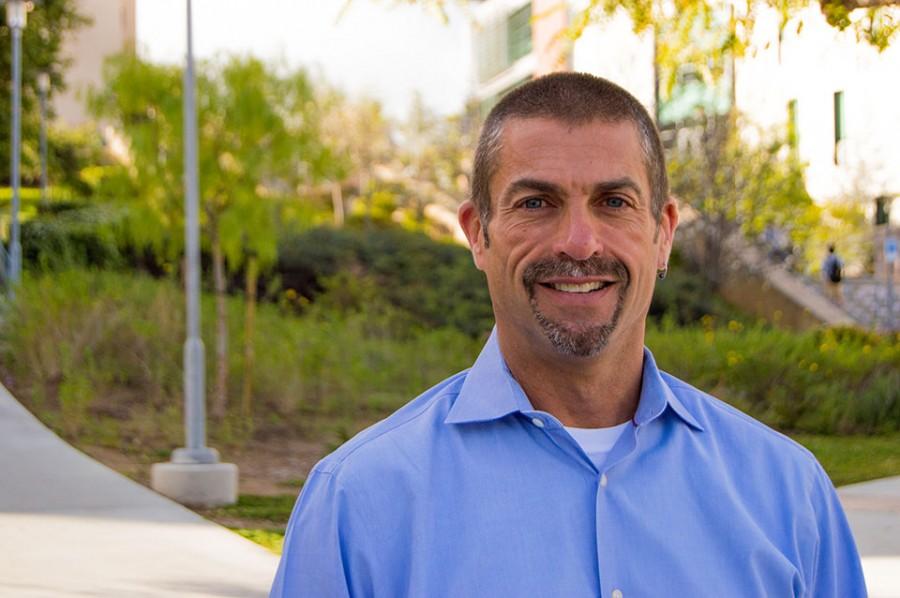Dr. Jay Robertson-Howell advocates for gender equality
Staff member uses feminist identity to help guide his work
April 3, 2016
Dr. Jay Robertson-Howell, Interim Associate Director of Student Health and Counseling Services (SHCS), is a dedicated health care professional who spreads positive messages on gender equality throughout his work.
Howell was hired at CSUSM in 2012 after working for seven years at Seattle University’s Counseling Center. He received his undergraduate degree in economics, and worked several jobs within corporate America before realizing that he wanted to change career paths and work directly with people.
He then went on to receive his Master of Social Work (MSW) and began to work closely with children, youth and families. After deciding that he wanted to develop skills in the area of psychological assessment, he returned to school and received his doctorate in psychology.
“After working in a variety of settings that included residential treatment, psychiatric inpatient and community mental health, my internship at the University of Washington’s Counseling Center solidified my desire to work with the college and university student population,” he said.
When asked about the importance of feminism and what gender equality means to him, Dr. Robertson-Howell said that he identifies as a feminist and wants to help empower others.
“When I started my MSW program in 1998, I became acutely aware of the social inequities with gender, race, ethnicity and other diverse identities. I had to recognize and own my own position within a dominant group, even though I also identified as a gay man and have experienced discrimination first hand based on my sexual identity,” he said.
“In recognizing the privilege that I do have, it was fairly easy to make the decision to use that privilege for social justice and working in ways that provide equality and empowerment to all humans.”
Dr. Robertson-Howell also explained the ways in which his work at SHCS is affected by gender equality and/or inequality.
“Stigma related to mental health is a barrier for both men and women. Research shows that women are more willing to seek out assistance than men and this is reflected in the data for mental health agencies. Our demographics are consistent with this data,” he said.
Dr. Robertson-Howell also attempts to help students by examining typical masculine and feminine stereotypes and their stigmas.
“As a scholar of issues related to men and masculinity, I look for ways to break down the stigma that men have about asking for help. The other factor is based on the individuals who decide to become professionals in the field,” he said. “We tend to see more women in the ‘helping professions’ because, stereotypically, the ‘helping professions’ do not fit within the social constructs of masculinity.”
As a health care professional, he believes it is especially important to embrace feminism as he has worked with people who feel the psychological effects of gender inequality.
“I think the people that don’t identify as feminists (men and women) are okay with the social constructs related to gender and the power hierarchy that we currently experience within society. I think it’s important to embrace feminism because everyone has the right to equal opportunities and sometimes for that to happen, playing fields need to be level,” he said.
In moving forward, Dr. Robertson-Howell said that he hopes to see and help advocate for the continued progress of gender equality, especially within the public education system.
“I’m a strong believer that public education through the university system needs to be accessible to anyone that wants to earn a college degree. It would be great to find a way to make a public college education free so economic resources are not a barrier,” he said.
“Also, individuals need to be paid based on skill level, not gender. It’s unfathomable that women make $0.75 to every $1.00 earned by a man.”
Dr. Robertson-Howell will continue to stress the importance of feminism and gender equality within his work, and will remain dedicated to helping students through these important issues.







